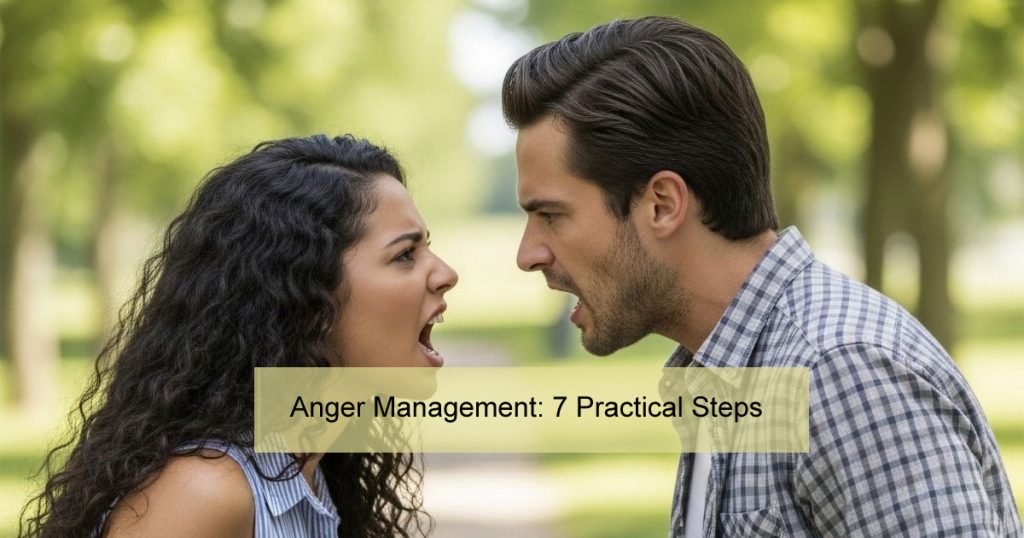Anger is one of the most natural and human emotions. However, when we don’t experience it in a healthy, functional way—when it isn’t expressed or managed constructively—it can lead to interpersonal conflicts, misunderstandings, and intense psychological stress. Below are some practical steps and behavioral strategies that can help you experience and manage your anger effectively, improving your communication and relationships.
STOP (or Pause)
In the early stages of anger management—and later, when you find yourself in an interpersonal disagreement and feel your anger escalating—it’s important to ask your interlocutor for a pause, a short break. During this time, try to think about what is triggering your anger and which unhelpful belief in your way of thinking is preventing you from adopting a more functional behavior. You can also try relaxation techniques, such as diaphragmatic breathing, taking a short walk, or listening to music.
Take Emotional Responsibility
It’s important to accept that the main person responsible for managing your anger is yourself, not your interlocutor. People interact and influence one another; however, ask yourself: if the same event happened to 100 people, would all 100 react emotionally and behaviorally in the same way?
Rational Beliefs
If you correctly answered no to the previous question, it’s time to identify which unhelpful way of thinking is responsible for your intense anger. It’s important to recognize that our rigid thinking patterns cause our emotional distress, so we can reconstruct them into more flexible, helpful beliefs and deeper thoughts.
Instead of saying “I absolutely demand that…”, prefer “I would really like this, but I don’t absolutely need it to live or grow.”
Instead of catastrophic thinking, prefer realistically evaluating the negative consequences of an event and focus on solutions or recovery.
Instead of discouraging thoughts like “I can’t take this anymore, it’s unbearable”, choose thoughts that strengthen your mental resilience, such as “It’s difficult, but it’s worth enduring.”
Instead of labeling yourself or others globally and unfairly (“I’m useless” / “He’s an idiot”), prefer unconditional self-acceptance and acceptance of others, focusing on change, growth, and improving unhelpful behavior.
Acknowledge Others’ Right to Make Mistakes or Disagree with You
Remember: when we recognize another person’s right to be wrong, we are also granting that right to ourselves! It doesn’t always mean the other person is deliberately trying to harm us.
Communicate Your Feelings Openly
Describe clearly how you feel in a situation, keeping in mind helpful beliefs.
Communicate Your Requests and Desires Clearly
Express clearly what you want to change or happen, avoiding vague or abstract terms.
Negotiate and Compromise Functionally / Make Agreements
Compromise doesn’t always have a negative meaning. On the contrary, it is positive, realistic, and flexible when it helps us realize that it’s not always possible to get exactly what we want—but we can pursue what’s most important to us while maintaining our relationships.

